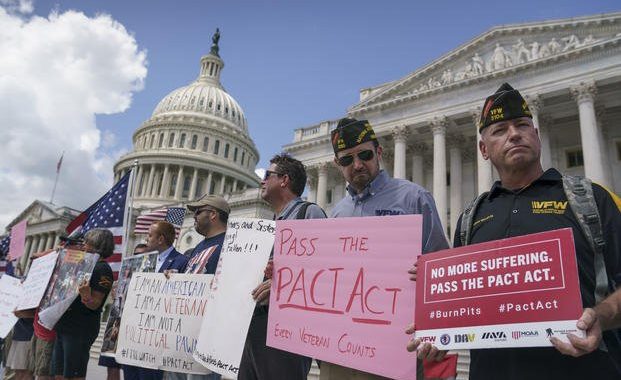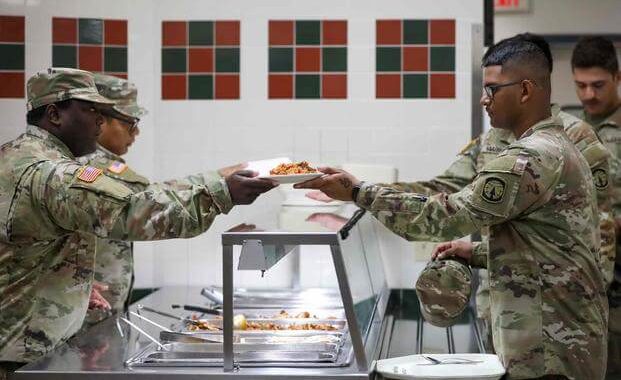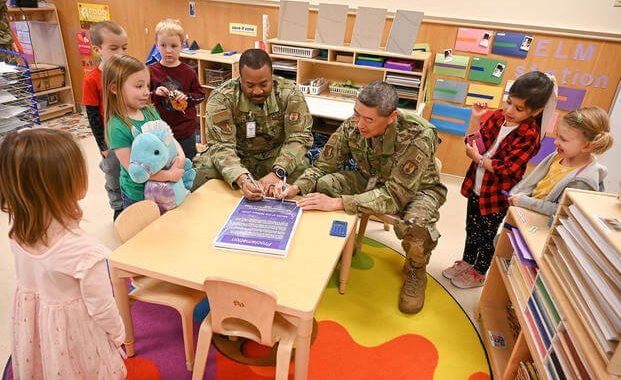RHC-A Commander Reflects on Her Team’s COVID Response Efforts
4 min read
FORT CAMPBELL, Ky. – The commanding general of the Army’s largest regional health command met with military and civilian frontline healthcare workers on Fort Campbell, Kentucky and in Wisconsin during a battlefield circulation, Jan. 4 to 6, reflecting on their COVID-19 response efforts.
“It’s just an enormous point of pride for me to be associated with this great group of professionals that we call the “Ready Now” Regional Health Command-Atlantic,” said Brig. Gen. Paula Lodi, RHC-A commanding general, responsible for the medical readiness of the force and healthcare delivery at all Army medical facilities east of the Mississippi River, including Puerto Rico. Here, Lodi reflected on how quickly her team across the region has adapted during the pandemic.
In the past year, military and civilian personnel throughout the region have joined the frontline forces in the nation’s battle against COVID-19, while continuing the mission to support the medical readiness of Soldiers from units within the region, including the 101st Airborne Division (Air Assault), the 82nd Airborne Division, 3rd Infantry Division and 10th Mountain Division, and providing care to family members and retirees.
When Lodi assumed command in June, military treatment facilities in the region were just building up in-house COVID-19 testing capabilities. In the first months of the virus’s spread in the U.S., healthcare workers in the region performed nasal swabs on beneficiaries with COVID-like symptoms, but the samples had to get sent to one of only a few medical laboratories in the nation capable of processing and analyzing the results of the new virus. This caused lengthy delays in getting results to beneficiaries and sidelined Soldiers while awaiting results. But before long, RHC-A helped MTF logistics personnel in the region procure the newly developed COVID-testing equipment and supplies so their medical laboratory personnel could process and return COVID-19 test results much faster.
As MTFs established their new normal to meet the medical needs of their beneficiaries during a pandemic, the region overcame another challenge to support a medically ready force. Working with Public Health Command-Atlantic, a direct reporting unit within region’s organizational structure development, her team established an effective time and money-saving predeployment COVID-19 screening method called pooledtesting. In August, Blanchfield Army Community Hospital healthcare workers were able to safely and accurately screen and swab 101st Airborne Division (Air Assault) Soldiers prior to their rotation to the Joint Readiness Training Center at Fort Polk, Louisiana. This new capability in response to the pandemic allowed leaders to identify and isolate asymptomatic COVID positive Soldiers within a battalion-size unit prior to deployment in order to protect the health of the force.
“We were able to stand up pooled-testing using Public Health Command-Atlantic to be able to relieve some of the pressure on the installation hospitals and clinics, so that they could focus on the diagnostic testing [of beneficiaries], and we could focus on the readiness aspects of getting the Army back into large-scale training exercises and deployments.
We’ve transitioned since then and now we are rolling out the vaccine and that is another huge lift for the region,” said Lodi, in regard to the expanding COVID-response capabilities in the region.
Lodi visited a temporary COVID vaccine clinic in the hospital and learned how BACH public health leaders are implementing its first phase of COVID-19 vaccinations on Fort Campbell. This phase encompassed frontline healthcare workers and first responders. Hospital Commander Col. Patrick T. Birchfield also briefed Lodi on how the team will safely implement the next phase to make COVID-19 vaccination available to enrolled beneficiaries with one or more high-risk factors in their medical record, who may be more likely to experience complications from the virus.
“I couldn’t be more proud of how they have been able to adapt and repurpose themselves to take on the new challenge,”
“I couldn’t be more proud of how they have been able to adapt and repurpose themselves to take on the new challenge,” said Lodi, speaking of BACH and other healthcare teams in the region that have added another line of effort to the COVID-response mission.
After visiting Fort Campbell, the commander traveled to Wisconsin to see Soldiers from BACH and other units in the region who are deployed in support of the Urban Augmentation Medical Task Force, which provides medical staff to assist federal and state agencies within local civilian hospitals. Five active-duty nurses assigned to duty at BACH are currently working in civilian hospitals there in support of the national response to the COVID-19 pandemic.
“So in amongst this great effort for [COVID-19] testing, and this great effort to rollout the vaccine, we have people on the frontlines in our civilian communities while we’re still running our hospitals, managing those [patients] who are most impacted by COVID-19. Every time we ask, the region comes through,” she said, thanking the team for their continued support to Soldiers and other beneficiaries in the region.
For the latest information concerning the hospital’s COVID-19 response effort, including vaccine distribution information follow BACH’s Facebook page at
Facebook.com/BACH.Fort.Campbell.





